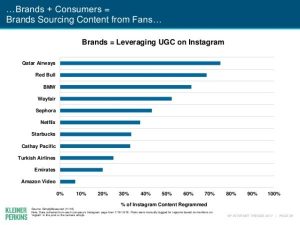
Organic search is one of the top channels to drive traffic to your site, but click-through rates fall off dramatically after the #1 position in search results. So the need to rank well is very real. In fact, about 76% of organic clicks occur on the first page, and 33% of organic clicks occur on position one! Clicks on the very next position decrease by more than half at 15%! (Here’s a cool infographic by Super Monitoring with a ton of interesting facts about click-through rates.)
Ranking high is very hard and also super important. But don’t get too overwhelmed—there are some terrific SEO audit tools that can help streamline your search ranking efforts.
Google Search and SEO Reporting Software
But first, there’s a core concept of Google search that we need to be clear on. Searches performed in Google (about 65% – 69% of total web searches) are based on Google’s index of the web, not the actual World Wide Web. Matt Cutts made a terrific video explaining this in more detail. The key takeaway here is that there are weighted rules to Google’s ranking and they exist to give searchers high-quality results.
Here are six essential tools I use all the time to augment my SEO efforts.
Top 6 SEO Audit Tools
1. SpyFu: All-Around Great Keyword Tool
Keyword research can be one of the most overwhelming exercises in SEO. SpyFu is great for cutting through the confusion and helping you to focus your efforts on what’s important.

SpyFu helps you:
- Identify keywords that were previously ranking but aren’t anymore (Just Fell Off).
- Find keywords that are almost ranking (Almost There).
- See the keywords that are ranking on pages 2-5. These could be phrases to focus on later.
All of these lists can be exported as a CSV file. They contain ranking position, URL where they appear on your domain, and all the basic metrics that accompany keywords (local monthly, global monthly, estimated cpc, etc.).
SpyFu can also easily identify:
- Words you’re fighting over with your competitors
- Words your competitors are ranking for that you aren’t
- Words you rank for that your competitors don’t

You can export the results as a CSV and compare them to other CSVs to identify opportunities to exploit and priorities to improve.
2. Raven SEO: Streamlined Technical SEO Audit Tool
Perform an in-depth website audit with laser precision without spending copious amounts of time in source code! Raven SEO will crawl your domain and uncover issues you need to fix. You can also prove success by running monthly comparison audits.
You can get detailed information ranging from image optimization, to deeper technical SEO like schema and microdata. Almost every report is available for download in a PDF or CSV.
Raven’s auditing functionality is only the beginning. You can also:
- Build custom reports to compare metrics from Moz, Whois, Raven, and Majestic
- Connect resources like Google Analytics and Google Webmaster Tools to centralize more information for strong side-by-side reporting
- Connect social profiles and monitor corresponding metrics
- Associate tags with competitors, keywords, and content
- Create events, limit them to a certain time span, and make them active across a profile, campaign, or global
- Perform powerful goal monitoring
- Build links with information from Majestic
- Keep a pulse on your PPC efforts with information straight from AdWords
3. SimilarWeb Toolbar: Multi-use Extension for Going Down the Rabbit Hole
I’m absolutely in love with SEO toolbars—they’re incredibly useful. And the SimilarWeb Toolbar packs a tremendous punch without bogging down your browser (available for Chrome and Firefox).

The SimilarWeb toolbar gives you tons of information in comprehensive reports that contain strong data. Some of the data points you get include:
- Traffic sources
- Referring and destination sites
- Visitors by geography
- Visitor demographics—other interests/sites visited
- Organic and paid keywords
- Social network sources and the ratio of traffic coming from each
- If the website/company also has any apps
- Basic metrics like average monthly views, bounce rate, pages viewed, and average time on site
4. Majestic: The Ultimate Link-Building Tool
Majestic SEO has a full paid version and a toolbar that together provide unprecedented power in link-building research. Use the extension to identify a website’s trust and citation flow on-the-fly and drill down into a full backlink report through the website.

In essence, Majestic helps you streamline link-building efforts by identifying websites with high-quality links. You can avoid linking to websites with spammy links, or remove spammy links from your site.
Word of warning: removing links is complex. Google can monitor the links on your site without guidance. Disavowing links should be done with extreme care. This might be better left to experts since it can harm your site if it’s done incorrectly. Learn more about Google’s war on spammy sites.
5. Google Keyword Planner Tool: Accurate Data on Specific Keywords
GKPT is a great place to start when you have a seed keyword list and want basic metrics on those exact keywords. Google doesn’t readily release keyword performance metrics for all available keywords when you research new words, but it will give accurate data on exact inferences. Rand Fishkin did a revealing study to prove that Google keeps some data secret.
Basically, for reliable metrics on exact keyphrases, GKPT works great. However, when you’re searching for new keyphrases, it’s best to get creative with your strategy.
6. Moz Toolbar: Useful Information FAST!
The Moz toolbar gives you a snapshot of key information about a website’s authority and spam ratings.

By identifying key SEO elements and how they interact with each other, you can pull a wealth of knowledge from this seemingly simple summary.

You can not only easily identify links on a page, but also drill down into what kind of links are on a page, including:
- Followed
- No-Followed
- External
- Internal
One of my favorite features lets you see the domain authority for each page in the Google search results.
Pro-tip: Turn on the toolbar to scan through an entire site and gather page-level metrics via the site:search operator.
Variations in SEO Reporting Data
With an arsenal of tools, you’ll probably get some variety in your data and the metrics might not quite match up. This is almost always because different tools measure metrics differently. One particular tool isn’t more or less reliable than the others, they’re just different.
Another reason for a discrepancy could be because the analytics are developed by a company and the units being measured in that metric are something less tangible than visits, bounce rate, or new users. One instance of this is domain strength.
Domain strength is among the highest ranking factors, so keeping it clear is paramount. One example of two metrics that measure strength and don’t match up are Majestic Trust Flow and Moz Domain Authority. Check out the study outlined in an article by Gillis van den Broeke, Head of Data Science at Linkdex, which proves a relation between Trust Flow and Domain Authority.
Identifying patterns between differing metrics can give you a powerful upper hand in bolstering SEO efforts. Each of these tools have their strengths, and by combining them the result will be world-class SEO.
Digital & Social Articles on Business 2 Community
(56)






